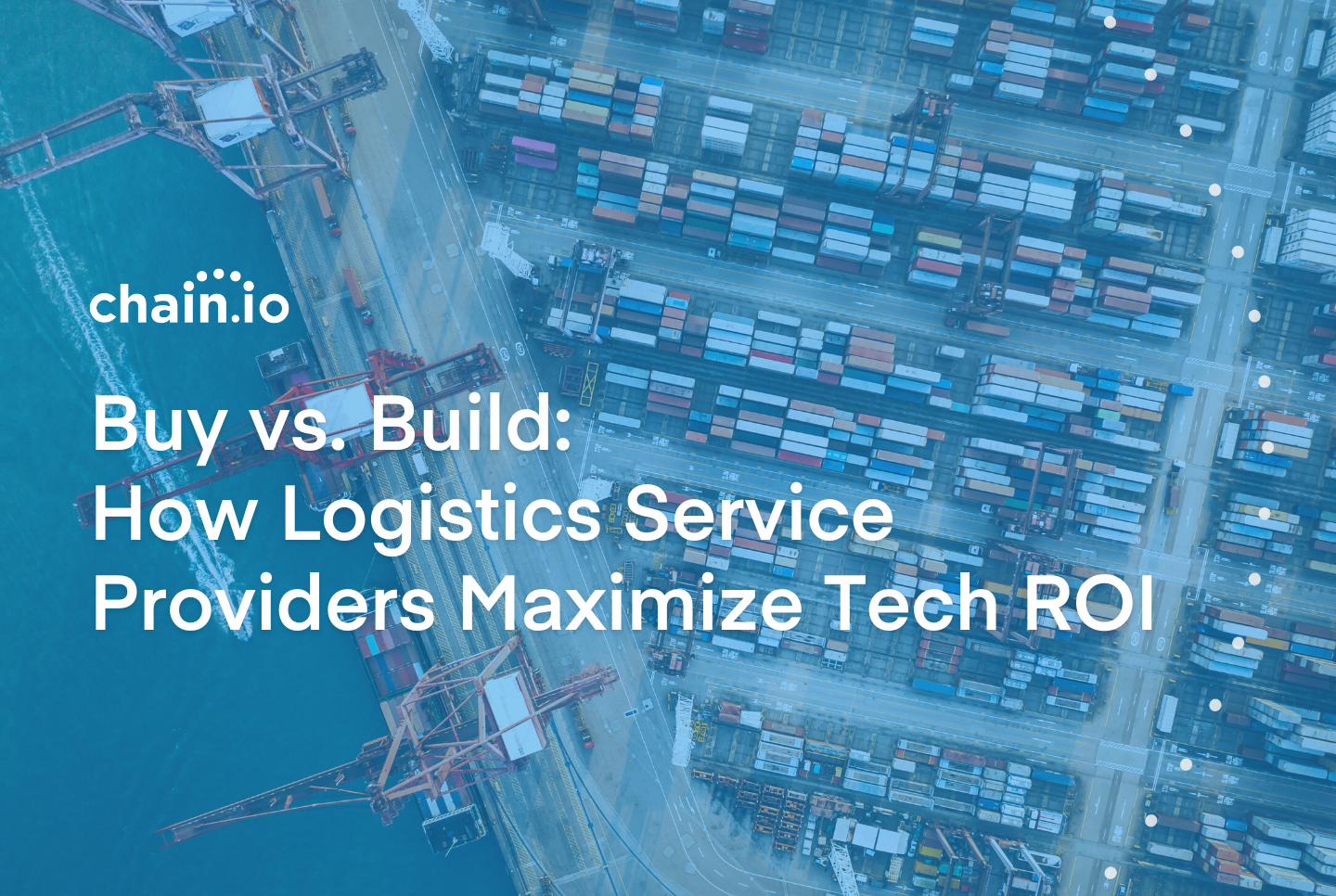
As a logistics service provider, your team plays a crucial role in the smooth execution of customs clearance for your customer’s shipments. Not only are you responsible for the efficient movement of goods around the world, you’re also likely juggling ever-changing compliance and customs regulations, completing invoices, bills of lading, and packing lists that need to be fully accurate, and managing risks and costs that may come with detention and demurrage, not to mention keeping your customers informed of every step along the way.
Part of being a world-class logistics service provider is excelling at everything for your customers, but the customs process can be sticky for even the best of the best. Prioritizing a more efficient customs clearance process ensures that your customer’s goods flow freely, minimizing delays and avoiding costly fees for non-compliance, leading to happier customers that trust your work.
While there are many challenges in customs clearance, and a number of systems and data sources you can use to streamline this process, you’ll likely want to start with ensuring your systems are connected to your importers. Connecting with importers directly allows for the fastest, most accurate customs declarations and allows your brokers more time to review customs data, reducing risk and improving compliance. Let’s dive in.
The Challenges of Customs Procedures
The biggest challenges we hear from LSPs about their customs process are ensuring regulatory compliance, managing the avalanche of data that’s associated with each shipment, and ensuring their customers stay in the loop along the way.
Regulatory Compliance
International trade laws and customs regulations are anything but static. With rules that vary by country and can change with little notice, staying compliant is like hitting a moving target. For your team, this means constantly monitoring regulatory updates, understanding the nuances of trade agreements, and ensuring that every shipment adheres to the latest requirements.
The complexity of regulatory compliance is further compounded by the need to navigate anti-dumping laws, sanctions, and export controls, all of which can vary significantly across jurisdictions. Failure to comply not only risks delays and financial penalties but can also damage your reputation and relationships with clients.
Data Management
In today’s supply chains, the volume of data associated with customs brokerage is staggering. Each shipment generates a mountain of information, from product classification codes and values to origin and destination details, not to mention tariffs and taxes. Managing this vast amount of data, ensuring its accuracy, and efficiently processing it are monumental tasks.
That challenge is magnified when dealing with data from multiple sources, like shippers, consignees, government agencies, and third-party providers. Inconsistencies or errors that can happen when manually entering in this data can lead to misclassification, incorrect duty payments, and even the seizure of goods.
Customer Communication
Along with managing your data and keeping up on the latest trade regulations, you’ve got to stay transparent with your customers about the status of their shipments through this process. Delays, documentation discrepancies, or regulatory changes can impact shipment timelines, and customers value being informed promptly. The challenge here lies in managing expectations and maintaining open lines of communication, which can be particularly demanding during peak times or when dealing with unforeseen disruptions.
Benefits of Integrating and Automating Customs Data
Integrating your customs related data into a Transportation Management Systems (TMS), Automated Broker Interface (ABI) software, or Harmonized Tariff Schedule (HTS) database can transform the customs clearance process for your team.
Streamlined Operations
Automating the flow of customs data directly into a TMS, ABI software, or HTS database leads to significantly faster processing times. This connection allows for the automatic population of customs declarations with the data already stored in your systems, eliminating the need for repetitive and time-consuming manual data entry. The result is a smoother, quicker customs clearance process and a team that can handle higher volumes of shipments with greater accuracy. This not only speeds up operations but also enhances your customer satisfaction by ensuring goods are delivered in a timely manner.
Cost Reduction
The automation and efficient data management made possible by integration can lead to substantial cost savings. By reducing the need for manual data entry, LSPs can cut down on labor costs associated with customs processes and spend more time serving customers and winning new business. Additionally, the accuracy provided by automated systems minimizes the risk of costly errors, such as misclassification of goods or incorrect duty payments. Automation also allows for the optimization of routes and the selection of duty relief programs, further reducing operational costs. In an industry where margins can be tight, these savings are significant, enabling your team to improve profitability or pass savings on to your clients.
Compliance and Risk Management
Maintaining compliance with international trade laws and regulations is a constant challenge due to their complexity and tendency to change. Integrated systems provide up-to-date information and required fields for regulatory requirements, ensuring that all customs declarations and documentation are compliant. This proactive approach to compliance helps to minimize the risk of penalties, fines, and shipment delays associated with non-compliance. Moreover, integrated systems can offer enhanced risk management capabilities by flagging potential issues before they become problems, allowing LSPs to address them proactively.
Customs Data Integration with Chain.io
To increase your accuracy and decrease the costs associated with automated commercial invoice processing and declaration creation and reporting, leading LSPs are connecting to their importers directly. This integration allows for the fastest, most accurate customs declarations and gives your brokers more time to review customs data, reducing risk and improving compliance.
With Chain.io’s Customs Operations solution, you can automate the flow of invoices, shipment data, declarations, documents and milestones between your brokerage systems and your importer systems. Not only does this give your customer better transparency into the customs process as you move their freight, it gives your team more time to ensure accuracy and work more efficiently.

How Chain.io Customs Operations Solution Works
The Chain.io platform connects you directly with your importers so you can leverage electronic data for faster, more accurate customs declarations. By integrating your data, your team can improve overall compliance and efficiency, and get your customer’s freight released faster with automated commercial invoice processing. If you’d like to learn more about integrating your customs data, get in touch with our team today!
Explore ProductBook a Demo


